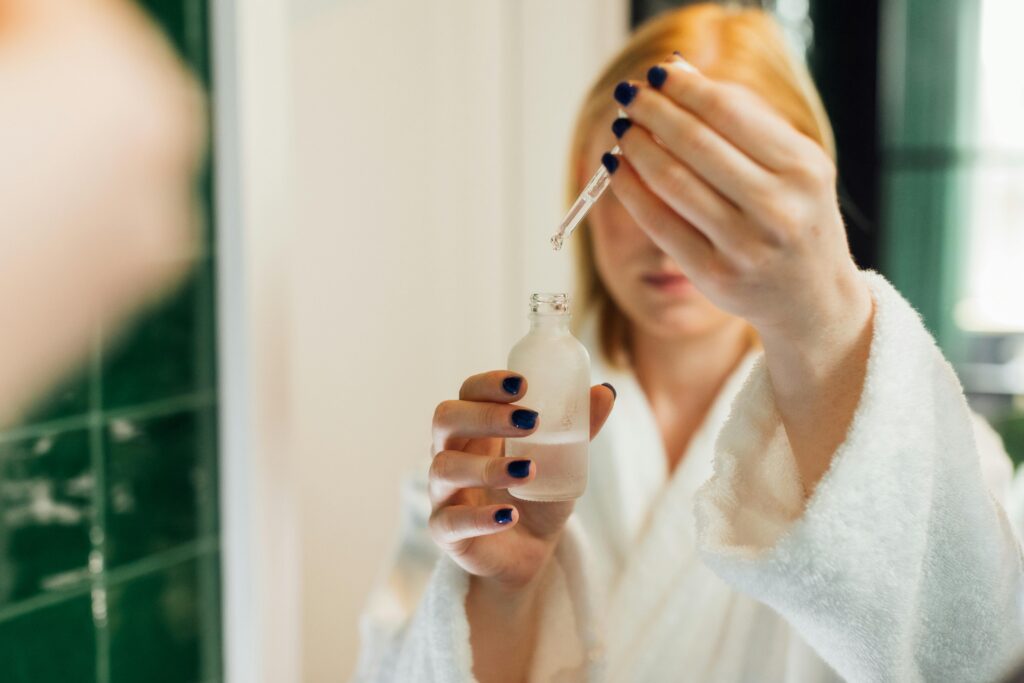Retinal, also known as retinaldehyde, is rapidly becoming one of the most sought-after ingredients in the cosmetic industry, especially in anti-aging skincare. This powerful vitamin A derivative is closely related to the more commonly known retinol, a staple in skincare routines for its ability to reduce wrinkles, and fine lines, and improve overall skin texture. However, retinal stands out due to its enhanced potency and gentle nature, making it a game-changer for those seeking effective skincare solutions.
Why Retinal is the Future of Anti-Aging Skincare
Retinal is gaining recognition as a superior alternative to retinol, thanks to its unique properties:
Higher Efficacy for Faster Results
Retinal is just one conversion step away from retinoic acid, the active form of vitamin A that directly interacts with skin cells. This proximity means retinal works faster and more effectively than retinol, delivering visible improvements in skin texture, tone, and firmness. Research shows that retinal can reduce the appearance of wrinkles more quickly, making it an excellent choice for those looking for rapid results.
Less Irritation for Sensitive Skin
One of the common drawbacks of retinol is its potential to cause skin irritation, dryness, and peeling, particularly for those with sensitive skin. Retinal, however, is known for being gentler, offering the same anti-aging benefits without the harsh side effects. This makes it a preferable option for individuals who have struggled with retinol’s irritating effects.
Dual Benefits: Anti-Aging and Acne Treatment
In addition to its anti-aging properties, retinal also boasts antibacterial properties, making it effective in treating acne. This dual action makes retinal a versatile ingredient for those dealing with both aging skin and adult acne, offering a comprehensive solution in one product.
Recent Surge in Popularity
Although retinal has been used in dermatology for some time, it has only recently gained mainstream attention in over-the-counter skincare products. As more brands introduce retinal into their product lines, it’s becoming clear that this next-generation retinoid is here to stay, offering faster results with fewer side effects than traditional retinoids.
How to Incorporate Retinal into Your Skincare Routine
To maximize the benefits of retinal, it’s important to integrate it correctly into your daily skincare routine:
- Start Slowly: If you’re new to retinal, begin by using it every other night to allow your skin to adjust. As your skin builds tolerance, you can gradually increase the frequency.
- Pair with a Moisturizer: To prevent dryness, always follow your retinal application with a hydrating moisturizer. This will keep your skin supple and minimize any potential irritation.
- Use Sunscreen Daily: Retinal can make your skin more sensitive to the sun, so it’s crucial to apply a broad-spectrum SPF 30 or higher every morning to protect your skin from UV damage.

Why Retinal Should Be Your Go-To Anti-Aging Ingredient
For anyone looking to elevate their skincare routine, especially those over 40, retinal offers a powerful combination of efficacy and gentleness that’s hard to beat. Its ability to deliver fast results with minimal irritation makes it a standout ingredient in the world of anti-aging skincare.
Retinal is quickly becoming a must-have ingredient in the skincare routines of those seeking to combat signs of aging while maintaining skin health. Its superior potency, combined with its gentle nature, makes it an ideal choice for anyone looking to reduce wrinkles, improve skin texture, and even out skin tone—all without the irritation that often accompanies other retinoids. As more products featuring retinal hit the market, it’s the perfect time to explore this next-generation skincare ingredient and enjoy the benefits of smoother, firmer, and more youthful-looking skin.